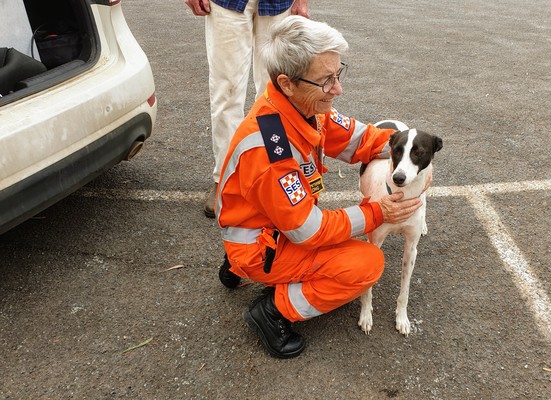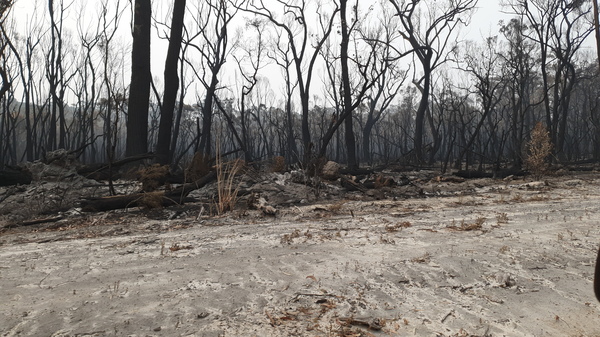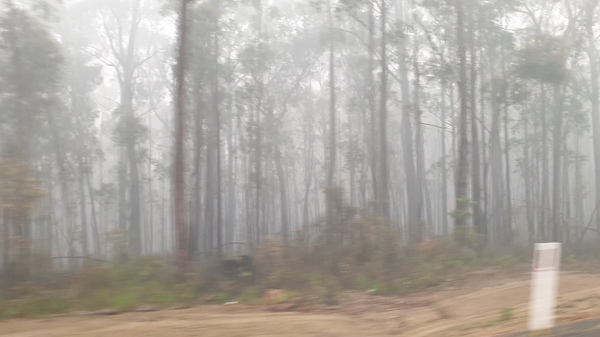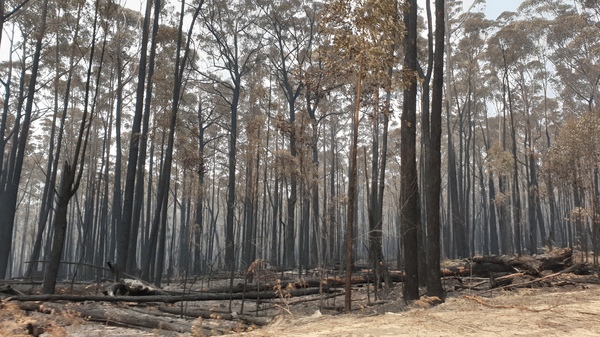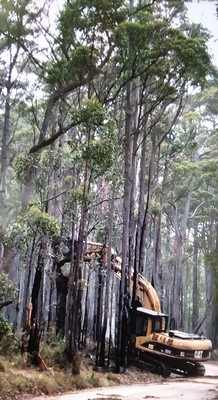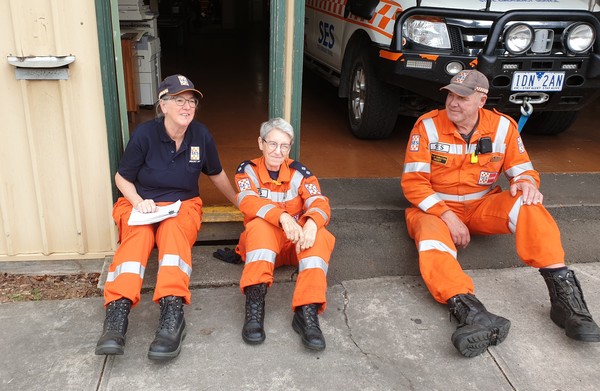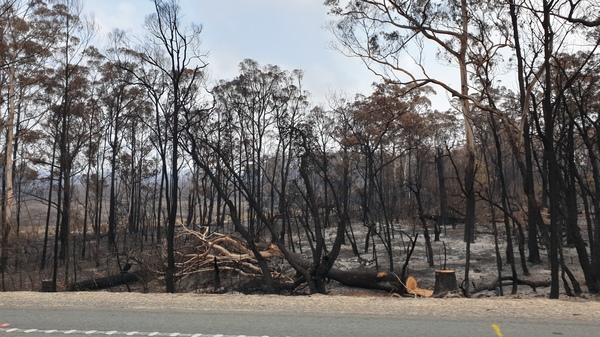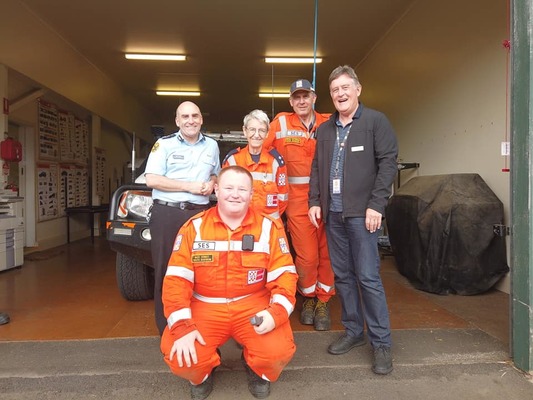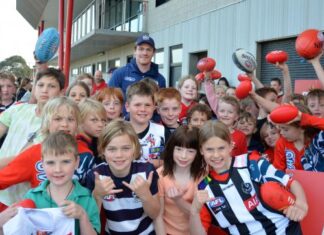Whittington SES volunteer Marion Petersen and two Geelong comrades felt like they were travelling “into eternity” as they drove through thick smoke in bushfire-devastated Gippsland.
“On a couple of those drives we could only see one car-length in front of us,” she said on Tuesday, after returning to Geelong.
“We had to be really careful because we didn’t know the roads. One of the guys said it was like driving into eternity.”
Eventually the smoke lifted to reveal even darker scenes, with blackened trees as far as the eye could see.
“When the smoke clears the devastation is just overwhelming,” Marion said.
“Everything is black. But every now and again there would be this little patch of half a metre by half a metre of green.”
Marion remembered seeing a wallaby and thinking she had never seen one that colour before.
“When we got close we saw it was burnt,” she said.
“We only saw one bird the whole time.”
But she was “in awe” of the resilience of locals, despite the devastation surrounding their homes.
“We had five days of smoke and those sticky little flies that get everywhere – horrible things!” she said.
“But (the locals have) had weeks of it.”
Marion joined Armstrong Creek’s Nathan Street and East Geelong’s Trevor Clutterbuck ferrying supplies to Orbost relief centre and transporting people to Cann River.
“They did all the heavy lifting – they were fantastic,” Marion said.
“They worked like little slaves. I just stood there and waved my hands around.”
The trio, representing Geelong and South Barwon SES units, were welcomed by locals, including the canine variety.
“They were so gracious, welcoming and so very grateful,” she said.
“One lady opened the back door of her car and her dog just leapt out. We ended up in a pile in the carpark having a bit of a cuddle.”
That same woman almost refused to take bottled water from the trio despite her water tank being contaminated by ash.
“They were really reluctant to take it, because there might be someone worse of,” Marion explained.
“That was a constant with the local people.”
At times their generosity left Marion “gobsmacked”, like when a stranger offered to pay for their breakfast at a local cafe after seeing their uniforms.
“It nearly brought me to tears that people would demonstrate such kindness,” she said.
“It was the same thing when we stopped for fuel and passersby would say nice things and ask if they could shout us a coffee or an icy pole. It was really heart-warming.”
Marion repeated Premier Daniel Andrews advice to donate cash or vouchers rather than goods to bushfire-affected areas.
“If you’ve lost everything second hand is probably not that good,” she said.
Victims spending cash donations on goods and services locally would help rebuild local businesses, she added.


